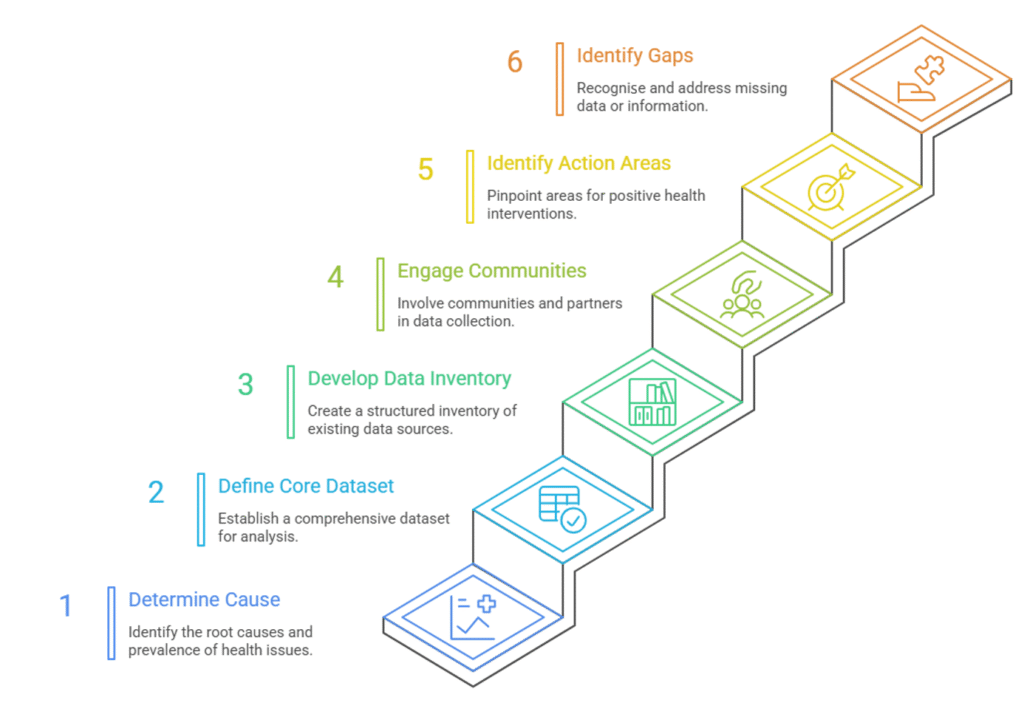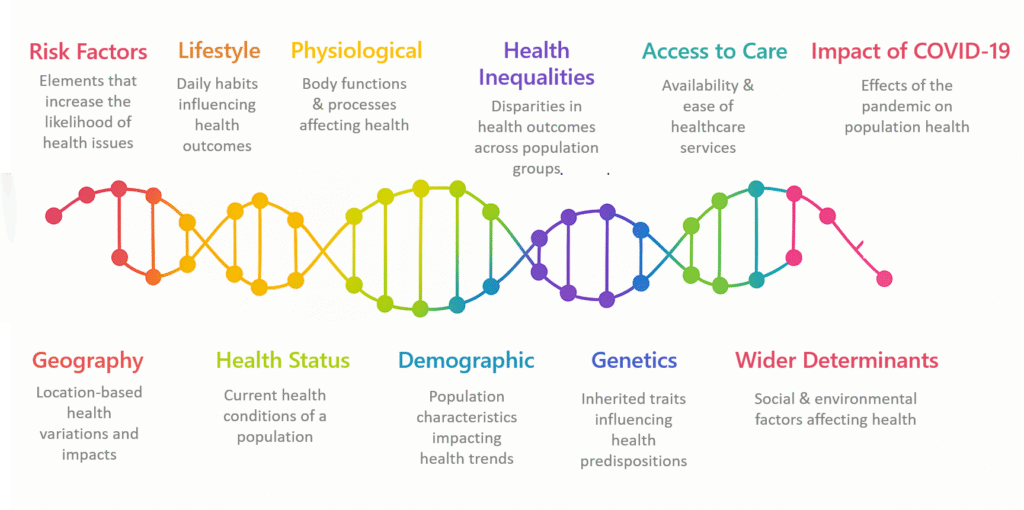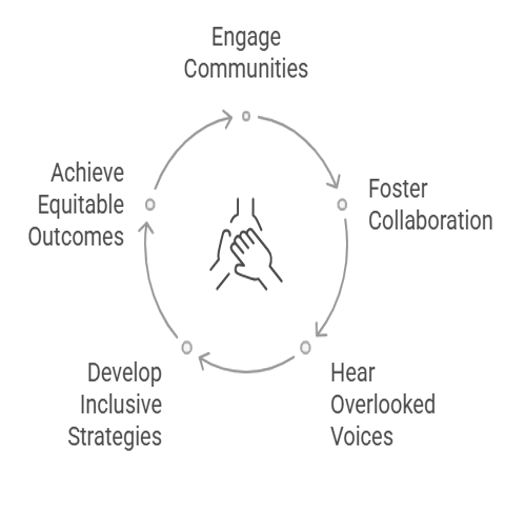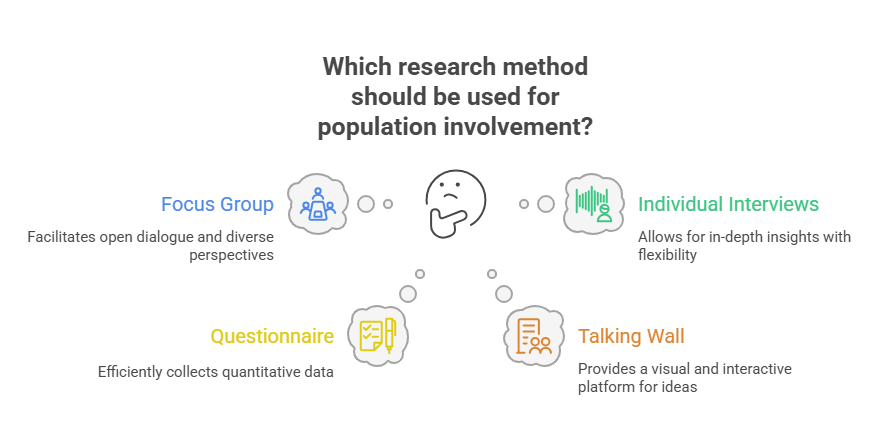Stage 2 – Identifying health priorities
Figure 8 summarises what aspects should be considered as part of stage 2. This stage involves collation of information from a range of sources, which may vary depending on the scope and aim of the JSNA being undertaken.
Fig 8. Summary of key steps which should be considered.

Click on the image to make it larger.
Defining a core dataset is an important output of this stage and is key to enabling collation of the most relevant information to inform the agreed scope and aim of the JSNA. Developing an inventory of existing data and intelligence sources for a core dataset is important to keep everything in one place and can be used as the basis for future JSNAs.
Figure 9 illustrates the types of information you should consider when developing an inventory of existing data and intelligence sources
Fig 9. Types of information to consider when developing an inventory of data and intelligence sources.

Click on the image to make it larger.
A key part of this stage to ensure that the most relevant information is being collated and where relevant to engage with key communities and partners (Fig 10). This can be done through a range of different ways (see Methods of seeking population involvement).
It is important to identify gaps in data or information at as early a stage as possible to allow exploration of ways to address these gaps, wherever possible.
Fig 10. Collaborative engagement cycle with key partners and communities.

Click on the image to make it larger.
Handy tools to support stage 2
Methods for seeking population involvement
Population involvement is key to informing any needs assessment. The key research methods used are summarised in the figure below (figure 11). The method used will depend on the scope and aim of a JSNA.
Fig 11. Research methods for population involvement.

Click on the image to make it larger.
It is important that the approach provided is relevant and accessible for the population group you are engaging with. Health Improvement Scotland has a wide range of tools to support good engagement.
In addition, a toolkit for effective engagement is available locally and is available to support people across Grampian who are planning community engagement and can be found here: Community Engagement Toolkit – Community Planning Aberdeen.
In addition, each HSCP and NHS Grampian have staff who can provide advice and support. The NHS Grampian team can be contacted via: gram.involve@nhs.scot